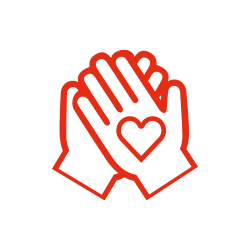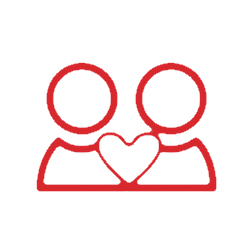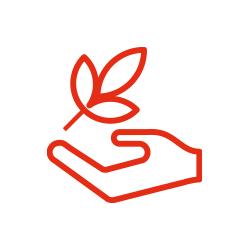OUR PILLAR
What isZakat?
The 8 categories of Zakat

The Poor


Those in need


Administrators


Those whose hearts need to be reconciled


Victims of slavery
The debtors


For the sake of God


Stranded travelers
The key to success
Zakat is one of the keys to success, both in the world and in the hereafter. Along with the other pillars of Islam, Zakat has the power to encourage and support the sustainable development of our community
Purification and growth
Linguistically, Zakat means purification and growth. Zakat is the instrument with which Allah (swt) has favored us to purify our souls spiritually and get rid of our deficiencies. Zakat strengthens faith and enables society to develop spiritually, economically and socially.
The objectives
Zakat has an inner and an outer dimension: The inner dimension suppresses the ego, helping the Muslim overcome things like selfishness and greed. The outer dimension includes removing obstacles for individuals and providing opportunities for society as a whole to flourish
How is the power ofZakat expressed?
As long as Zakat is seen as a charity spent on the basis of personal preferences, in remote locations and only for the benefit of the poor, its great potential will not be realized. The Swiss Zakat Foundation (SZF) enables us to join forces at the local level in accordance with the spirit of zakat and to spend zakat in a balanced way in the eight established categories mentioned in the Quran (9:60).
Our inspiration and roots draw from the well-known account of Mu’adh ibn Jabal, documented in both Bukhari and Muslim. In a significant assignment, the Prophet (peace be upon him) entrusted Mu’adh due to his knowledge, eloquence, and trustworthiness, directing him to Yemen. Mu’adh informed the people of Yemen that there was a duty to contribute a portion of their wealth as Zakat, which would be collected from the affluent and distributed to those in need. Thus, poverty was eliminated (see the History of Zakat here ).
This hadith shows that it is possible to create a strong and prosperous society through Zakat.
The DNA of SZF
How We Do It
Local
True to Our Tradition, we Distriibute Zakat at the local level
Central
We make Zakat more powerful by centralizing it
Balanced
We distribute Zakat in a balanced way across the 8 categories
We Join Forces
We centralize Zakat, as it was in the days of the Prophet (saw) and the many generations that followed. For Zakat is not only an individual matter, but a matter of the whole community. Zakat makes the society united, as if it were one family. The strong complement the weak and the rich help the poor.
We focus on Switzerland
The teachings of the four main schools of law show that spending Zakat in one’s own community is the priority. The wisdom behind this is that the community helps each other and thus develops on a collective level. A person cannot be a [true] believer if he fills his stomach while his neighbor is hungry.” (Sahih al-Bukhari).
We distribute Zakat in a balanced way
Contrary to what many people think, Zakat is not only for the poor. Zakat should be spent in a balanced manner among the eight established categories mentioned in the Quran (9:60). Only in this way can it provide a complete and integral response to the challenges we face.
Make An impact
Calculate Zakat
Use our simple calculator to work out what you owe and progress your Zakat.
Pay Zakat
If you know how much Zakat you owe or want to pay Riba, click the button below.
Give Sadaqah
Would you like to contribute to the National Zakat Fund? Then click here.


